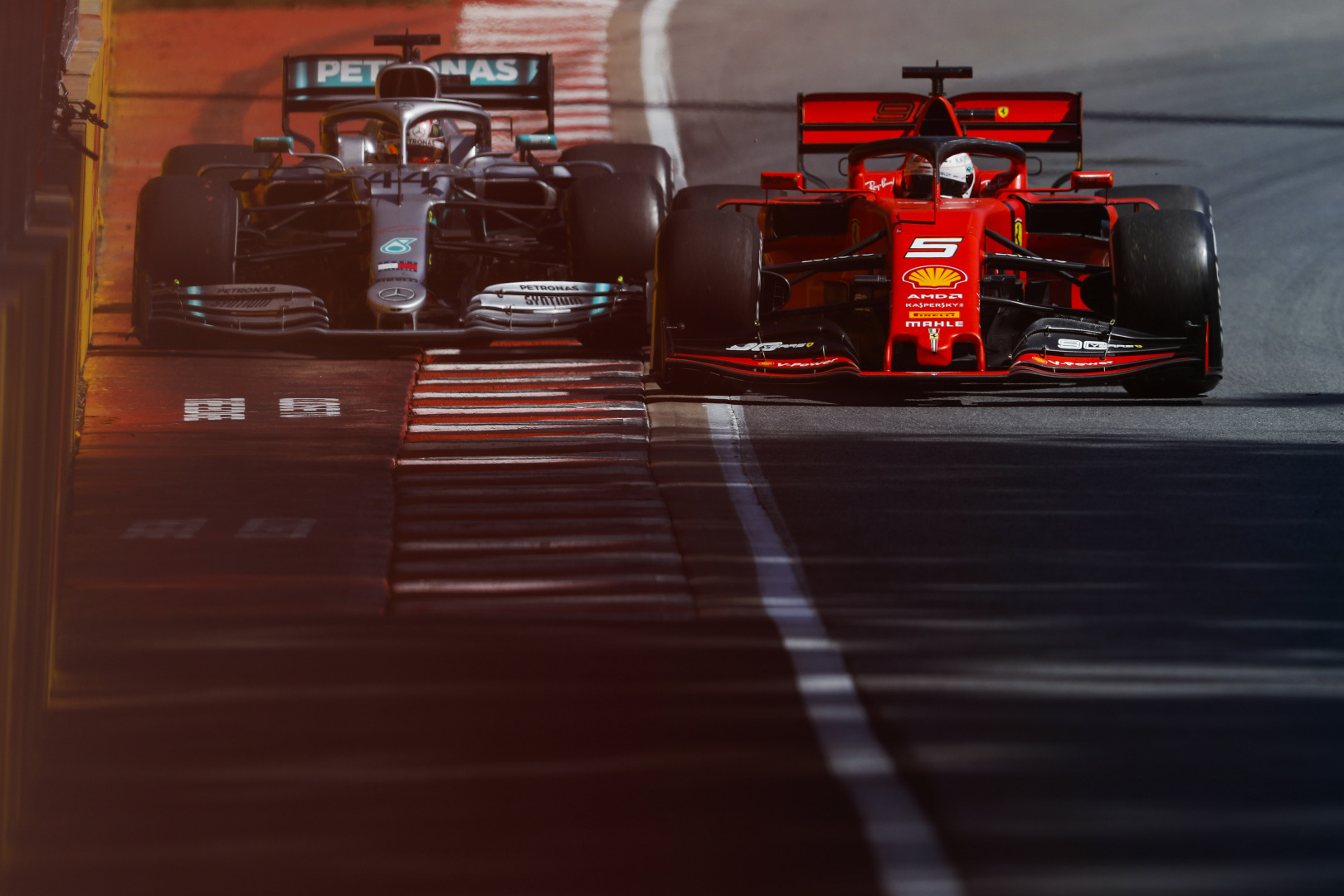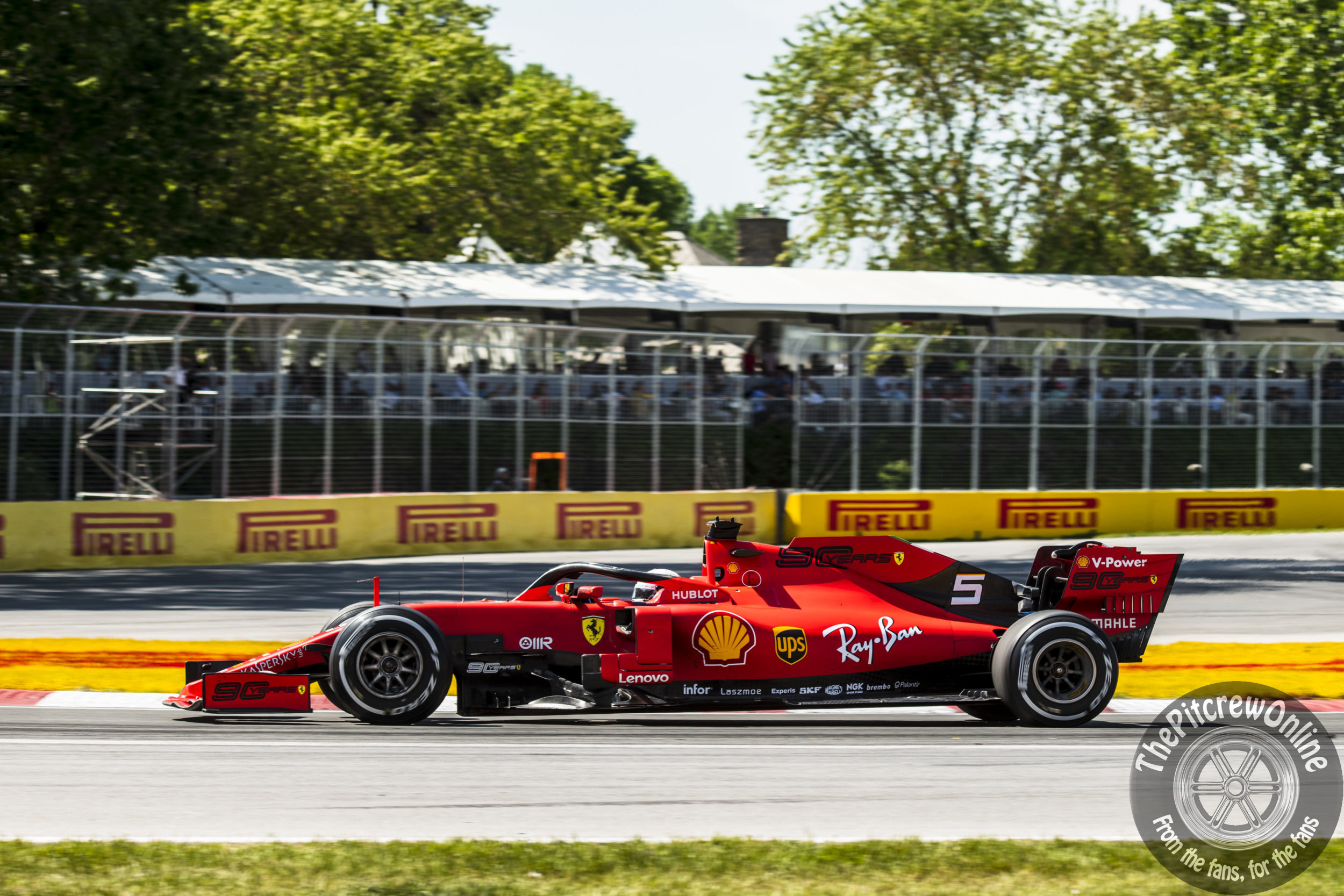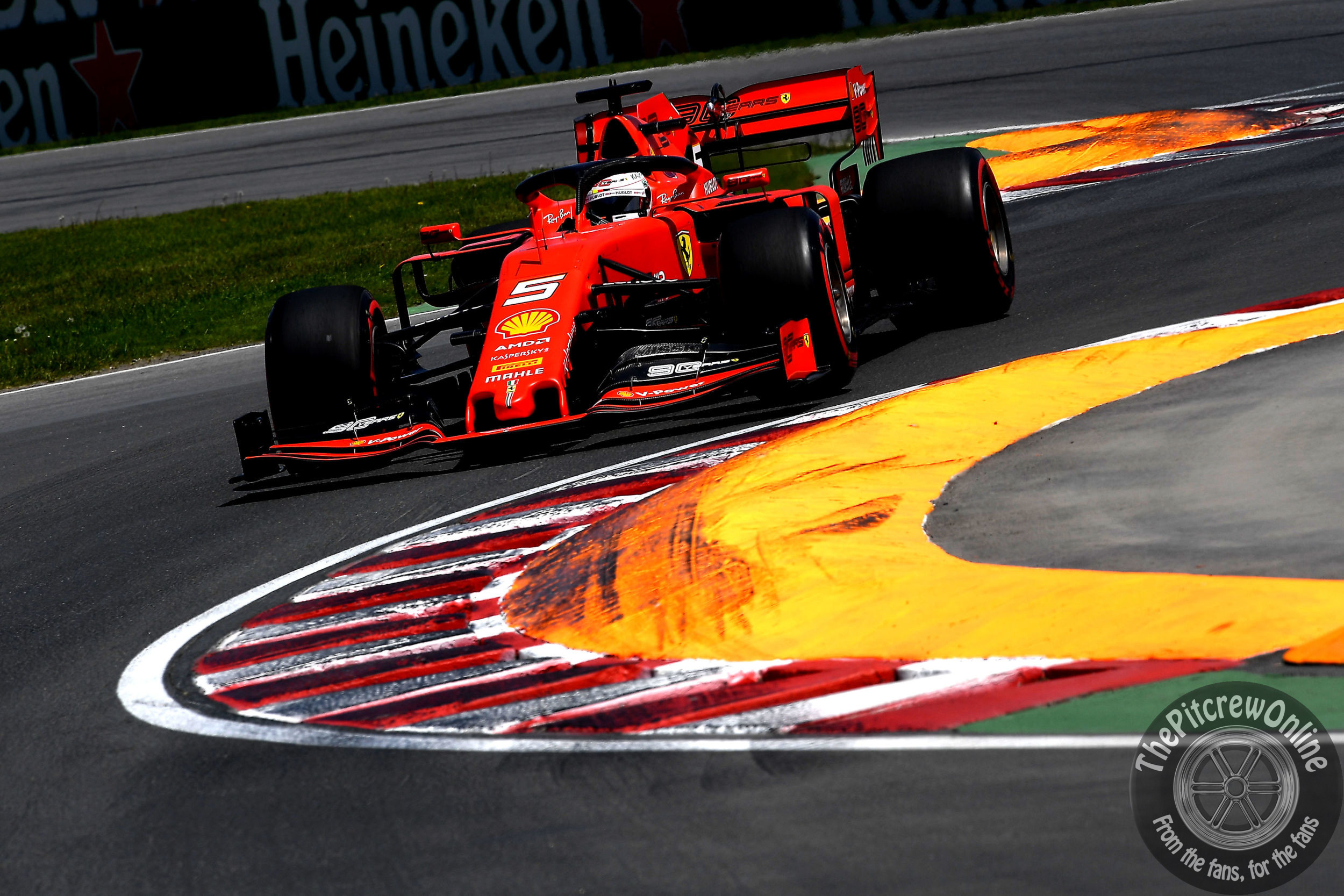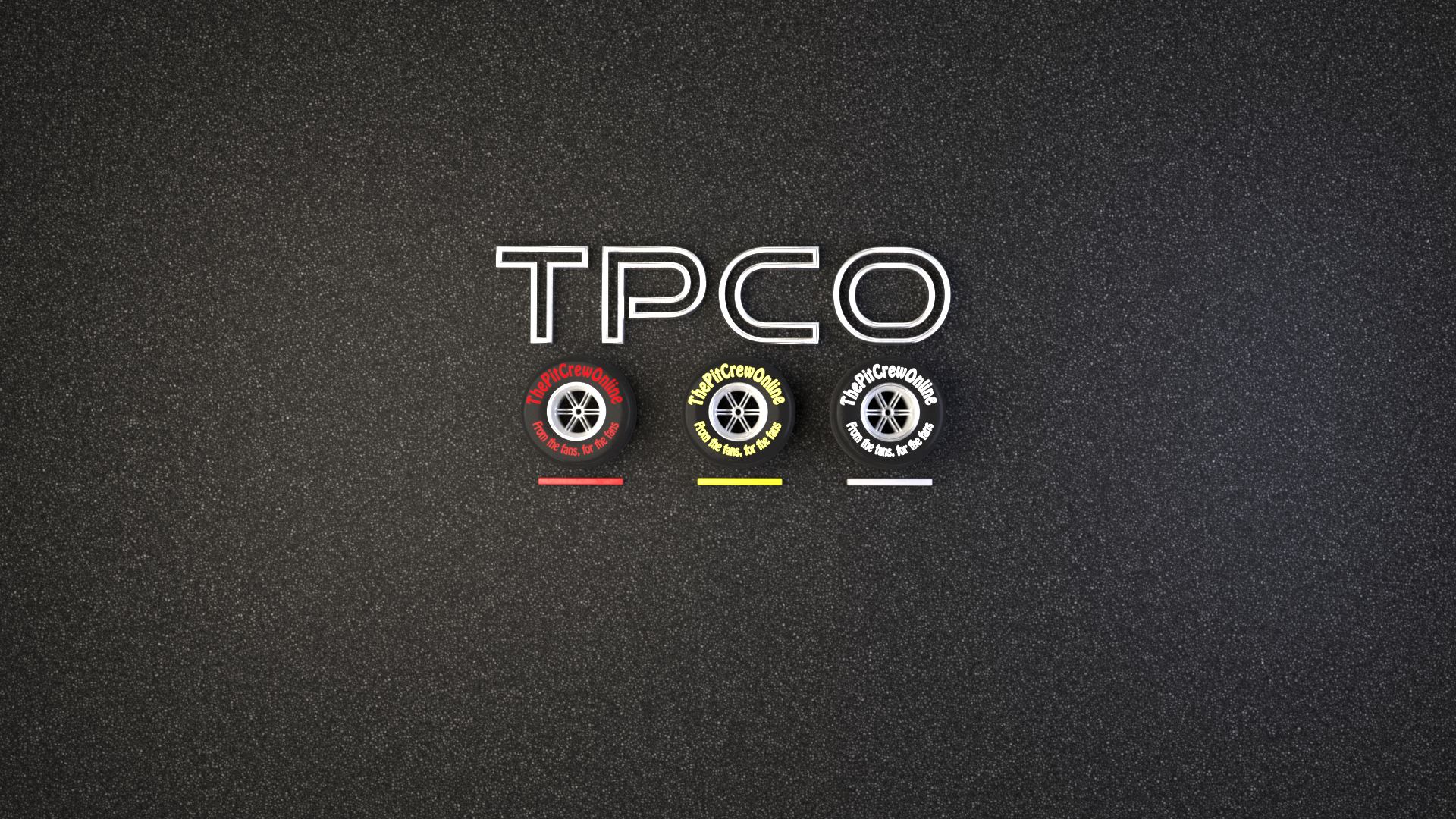What a mess. The 2019 season finally came to life in Canada, but perhaps not in the way we wanted it to.
Sebastian Vettel was pushing to protect his lead from Lewis Hamilton, who was displaying much better pace on the hard tyres than Vettel himself. In his attempts to break away, Vettel locked his rear tyres going into turn three. He ran over the grass, re-joined the track, lost the rear again, and very nearly made contact with Hamilton. He did manage to stay ahead though, with the gap between the two roughly the same as before.
Then came the real drama. The stewards decided that Vettel’s actions warranted a five-second penalty, added at the end of the race. In bizarre circumstances, Vettel crossed the line first, knowing that the win would be instead taken by a conflicted Lewis Hamilton, who stated that this was not the way he wanted to win.
A furious Vettel deliberated over whether he would attend the podium celebration, eventually deciding to join Hamilton and third-placed finisher Charles Leclerc, but not before switching the Parc Fermé boards around and declaring himself the deserved winner of the race.
Honourably, he discouraged the booing directed towards Lewis Hamilton by the fans and instead told them to aim their collective anger towards the stewards. But did the stewards do anything wrong? Are the rules wrong?

Ultimately, you could say both. The penalty was put down to unsafely re-joining the track, which may have been fair, but cast your minds back to Monaco 2016 when Hamilton left the track trying to stay ahead of Daniel Ricciardo, re-joined and, in doing so, very nearly put the Australian in the wall. No penalty was given.
What this highlights is an abhorrent lack of consistency in the rule-enforcement, which simply should not happen in a professional sport. In this respect, the Canadian Grand Prix was a humiliating day for Formula One.
However, F1 is just the same as any other sport, in that it has massive talking points that we can debate long into the night, with everyone having their own opinions on every aspect. This will naturally lead to different stewards having different views on how the rules should be applied and enforced.
You could therefore say that the stewards did not make this decision malevolently towards Vettel. Instead, they were simply interpreting the rules made by the FIA.
But how the should the rule about drivers leaving the track and gaining an advantage have been judged?
Ferrari’s view is that Vettel made his mistake and re-joined the track, actually losing time in the process. Once he had made his error, Vettel was back on track and the incident was over, with the German ahead of Hamilton after the incident just as he had been before. He then got very close to Hamilton, but did not make contact.

Mercedes’ view, which was also adopted by the FIA, is that Vettel went off the track and gave Hamilton a chance to pass him for the lead. Vettel then effectively denied him this opportunity by re-joining the track in a hazardous manner and nearly pushing Hamilton into the wall.
The general consensus from viewers and pundits came from the classic racing perspective. An innocent mistake was made – things may have gotten close, but then racing is supposed to be close. No-one crashed as a result, so on we go without another word said.
This, nostalgically but comparatively speaking, was the attitude held in previous eras of racing. Perhaps we need to accept that this era is over and that you simply can’t re-join the track and close the door on another driver any more. This may be within reason, but it was all in the spirit of good close racing, which is danger of dying if the FIA continues to heftily punish on-track mistakes.
So is the rule wrong? Vettel, ultimately, had nowhere to go other than back onto the track once he had gone off. He couldn’t just vanish out of Hamilton’s way, and he couldn’t just stop. Creating more rules isn’t going to eliminate the basic human aspect that we all make mistakes. More specifically, Vettel was ahead of Hamilton both before and after the mistake, no-one crashed, and both drivers were able to continue.
However, Hamilton will feel as though Vettel illegally denied him a passing opportunity, and that had he not taken avoiding action then the consequences of Vettel’s mistake could have been more severe.
As a result, it becomes difficult to find a way through which we can properly establish fault using the sport’s law. Therefore, the stewards should be expected to interpret and apply laws through basic common sense which, if I may step off the fence for a second, did not seem to be present among the stewards in Canada.

credit: @Scuderia Ferrari Press Office
These incidents are always subject to interpretation, and so we cannot expect consistency if the stewards are always different. The FIA cannot create a million laws for a million scenarios. The interpretation must be specific to each incident, which raises questions about the use of the different stewards at every race.
At a sport of this level, we simply cannot accept the unbelievable level of inconsistency from the FIA, who somehow do not seem to see the blatant issue that exists within F1.
These incidents, however, are not black and white, and there are always deeper layers to every story.
This next particular level, unfortunately, resembles a concerning pattern for Vettel. Ultimately, if Vettel had not made the error he did, none of this would have happened. By making the mistake and re-joining the track in front of Hamilton, Vettel gave the stewards something to consider, and this fell unfavourably for him.
This is not the first time he has made such an error. He was the architect of his own downfall last year, crashing from the lead in Germany, before spinning in Japan and the USA. The year before, Singapore effectively spelled the end of his title challenge, when a clumsy move across the track at the start saw him collide with Max Verstappen and Kimi Raikkonen. That night perfectly highlighted the fact that Ferrari themselves have repeatedly ruined their attempts to secure championship glory.
Truth be told, Sebastian Vettel’s title hopes are probably dead in the water at this point. Even Valtteri Bottas, who made a sublime start to the season, is beginning to see his title aspirations wither at the ominous, constant, and unrelenting brilliance of Lewis Hamilton.
The shame is that the Canadian Grand Prix wasn’t decided by brilliance, but rather by a harsh stewarding decision that reflects badly on the sport and sets a dangerous precedent that hard racing cannot be permitted any more.
[Featured image – Scuderia Ferrari Press Office]

